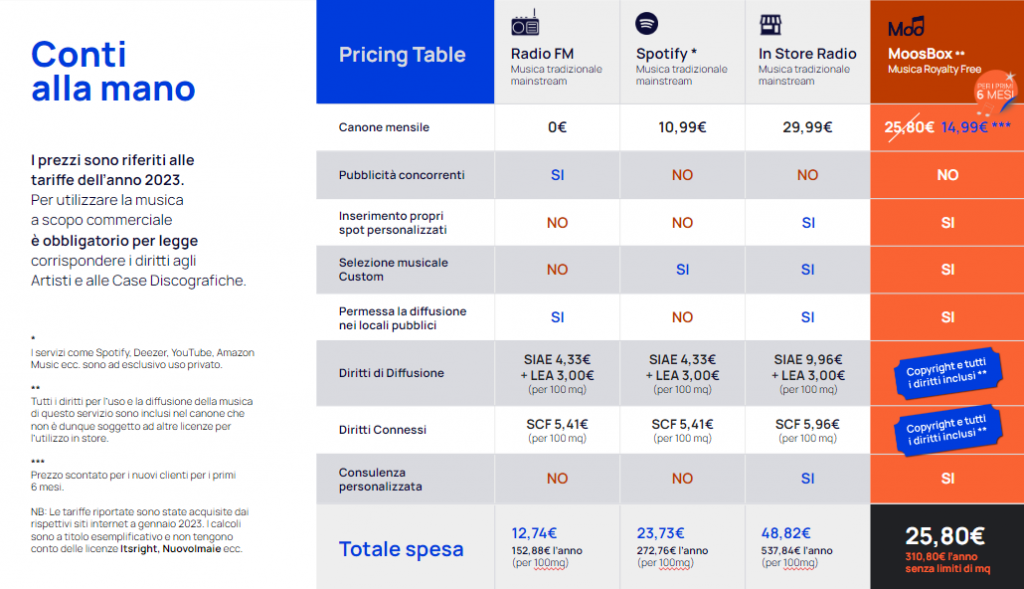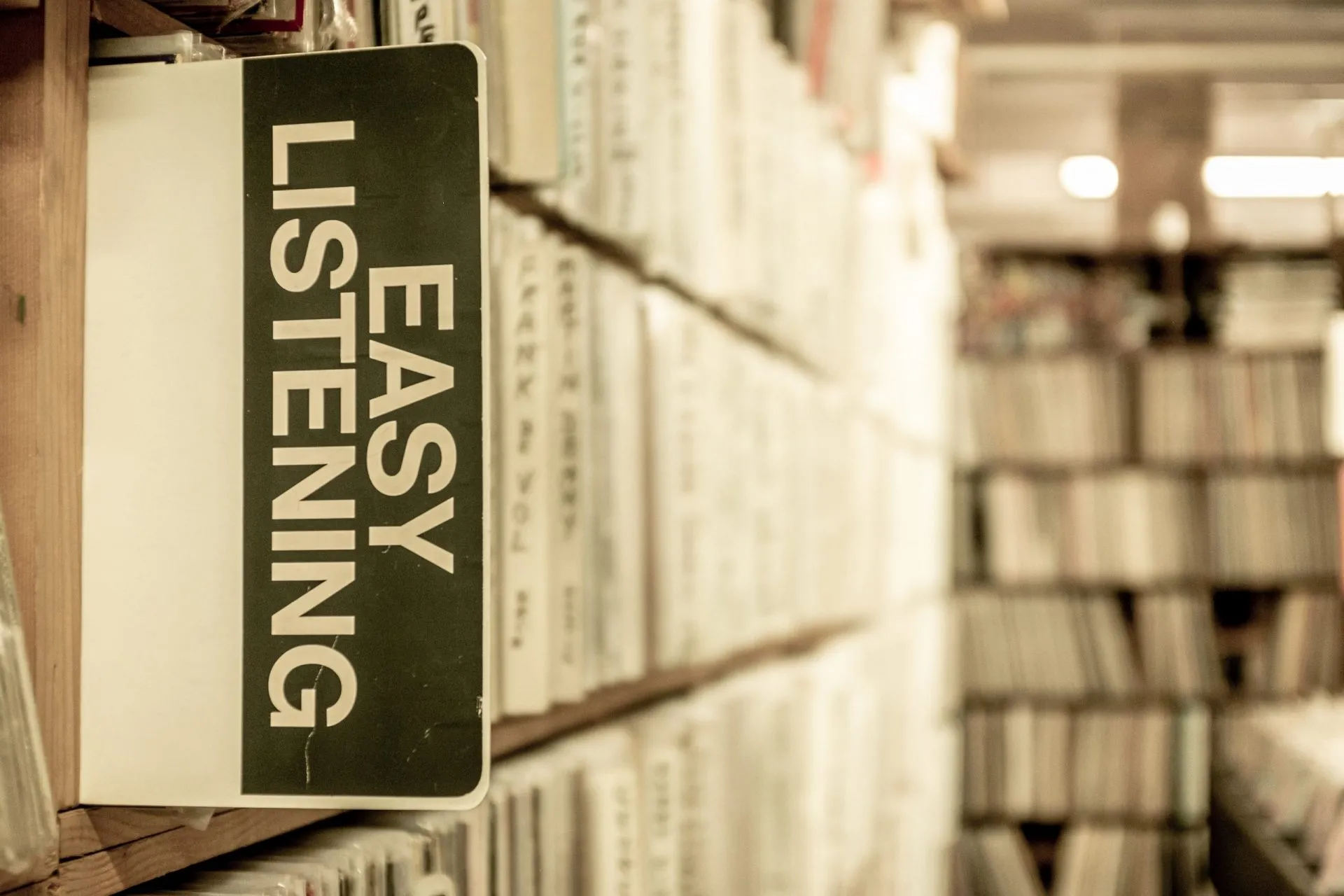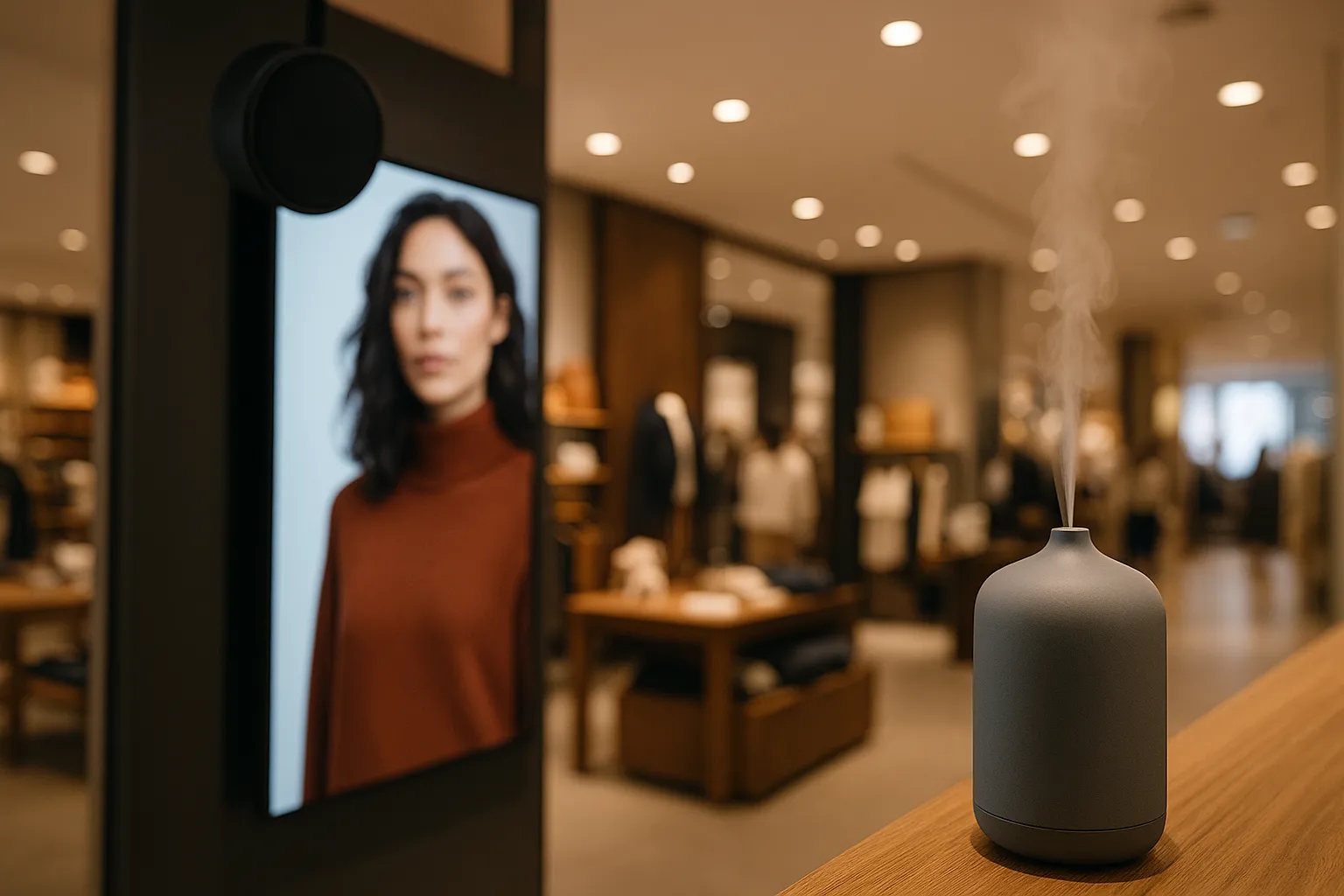The presence of music in any commercial activity, whether it’s a store, a restaurant, a hotel, or a gym, is crucial to creating a welcoming and engaging atmosphere. Music not only helps make the place more enjoyable, but also plays a key role in communicating the identity and desired ambiance.
The Careful Selection of Music
To ensure that the music is appreciated by everyone, it’s essential to consider several aspects:
- The Type of Music: The choice of music genre should align with the style and identity of the business. For instance, an elegant restaurant might opt for classical or jazz music, while a gym might prefer more energetic beats.
- Quality: The quality of the audio system is crucial. A low-quality sound system can compromise the musical experience and negatively affect the business’s image.
- Volume: Finding the right volume balance is fundamental. A volume that’s too high can be annoying, while one that’s too low might not create the desired atmosphere.
How to Broadcast Music in Your Business
The choice of how to broadcast music can be managed independently or entrusted to a Music Provider.
If you opt for autonomy, it’s important to carefully select the music source:
- Radio: An economical solution, but often lacking control over the playlist and subject not only to unwanted ads but also to expensive broadcasting licenses and related rights.
- TV: Using television channels is an option, but it lacks control over programming, advertising, and requires licenses and the TV subscription fee.
- Physical Devices (CD, MP3): Allow greater control over music selection but must comply with commercial use regulations related to song duplication and licenses.
- Streaming Services (Spotify, YouTube, Amazon Music, Deezer, etc.): Not authorized for commercial use and can lead to legal violations.
On the other hand, relying on a Music Provider, like MoosBox, which offers an automated, ad-free service, manages music broadcasting professionally, legally, and without additional music licensing fees.
Legal Aspects and the Importance of Regularization
Using music in a commercial context is subject to legal regulations and requires payment of royalties. Ignoring this issue can lead to serious legal consequences.
There is also a moral ethic, perhaps even more important than simply avoiding fines, since those who create musical works deserve fair compensation.
In Italy, organizations like SIAE, SCF, and LEA act as intermediaries between music rights holders and commercial users. Regularization with ALL THESE ENTITIES is essential to avoid penalties if you intend to use mainstream music, regardless of the source (radio, TV, CD, MP3, etc.).
Companies like MoosBox, which manage a fully licensed music catalog, can directly guarantee fair compensation to Artists in exchange for a reasonable fee for users, without additional intermediaries.
Music Diffusion Alternatives in Your Business
There are several alternatives to broadcast music in your business, but not all are the same. Let’s take a quick look:
- Mainstream Music: This is the most popular and well-known music, the one you hear on all the radios or online streaming services.
- Fully Licensed Music: This is independent Artist music that does not require royalty payments for broadcasting. It is specifically created and tailored for your business, based on the target, concept, mood, and message you want to convey.
The Pros and Cons of Each Alternative
| Alternative | Advantages | Disadvantages |
|---|---|---|
| Mainstream Music | – Recognizable – Doesn’t always attract customer attention – Doesn’t create an emotional connection with the brand | – Requires various expensive and complex broadcasting licenses and related rights – Doesn’t always fit the target and context – Can be repetitive and boring – Can evoke unpleasant memories |
| Fully Licensed Music | – Unique, original, and perfectly tailored – Communicates the brand’s personality, values, and positioning – Affordable and legal – Does not require costly broadcasting licenses and related rights | – Less known independent Artists – Not recognizable |
How to Choose Between Rights Management Companies
The decision on music choice for a business primarily depends on two key factors:
- Costs: Carefully evaluating the costs associated with music broadcasting is fundamental. Rights management companies like SIAE, SCF, and LEA determine fees based on various parameters, including the store’s surface area, the number of devices and speakers, and their sizes. These costs must be carefully considered during the decision-making process and are often higher than expected.
- Popularity of the Listened Music: Personal preference for current hits or commercially known music often leads to a choice of mainstream music, but are we really sure it’s the best choice for a business? Listening to FM or DAB radio, TV channels, web, satellite radios, audio CDs, MP3s, or opting for a mainstream Music Provider requires authorization from all rights management companies (SIAE, SCF, and LEA).
If, on the other hand, the goal is to save money or create a musical background independent of charts or popular songs, or if you want to stand out from competitors and avoid traditional commercial radios, you may lean towards alternative music archives.
In this case, it’s important to evaluate the variety and quality of the offer of these archives, while remaining aware of the legal aspects that govern commercial music broadcasting, and relying on MoosBox is the ideal solution.

What to Avoid Absolutely
The use of streaming services like Deezer or Spotify for commercial purposes is strictly prohibited. These services are intended for private use only, and commercial use can lead to serious legal consequences.
In conclusion, music broadcasting in a commercial context requires careful planning and consideration of essential legal aspects. Choosing the right music source and regularizing the situation with rights management companies is essential to creating a pleasant atmosphere and respecting the artists who contribute to the soundtrack of our commercial environment.




